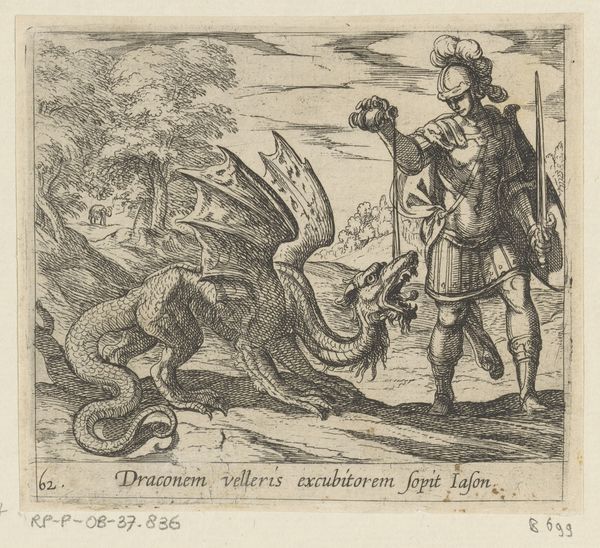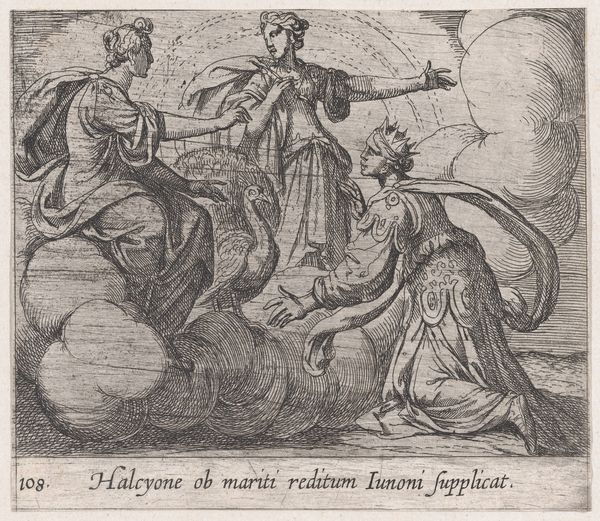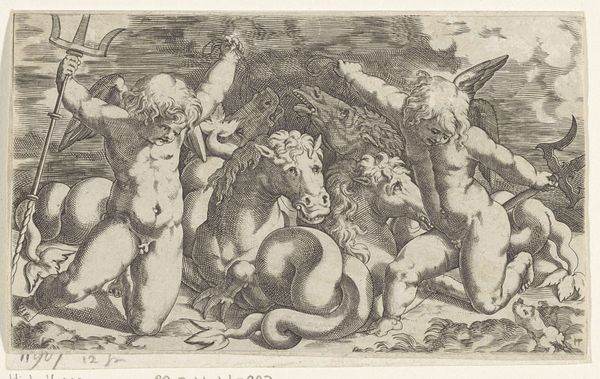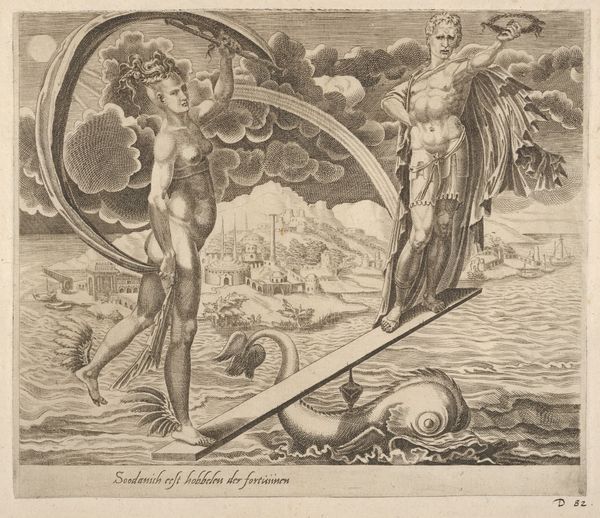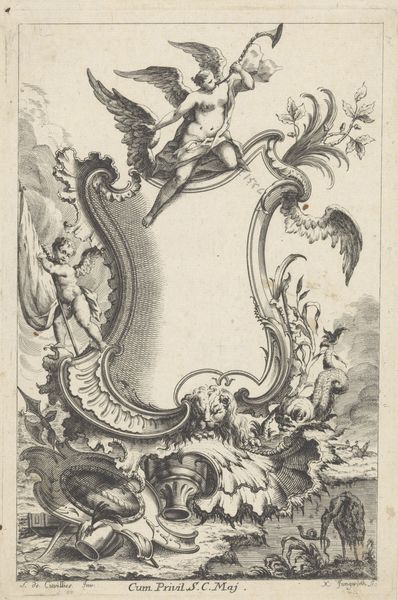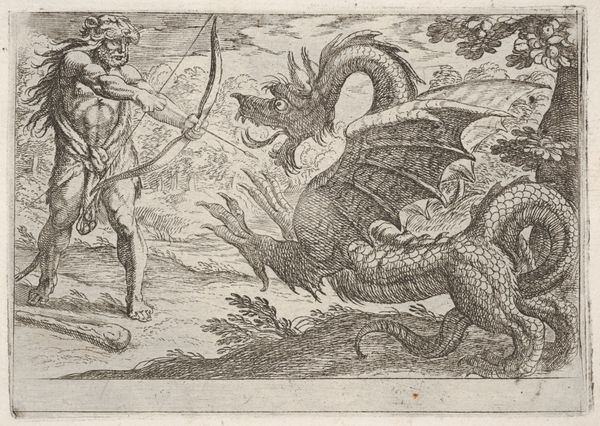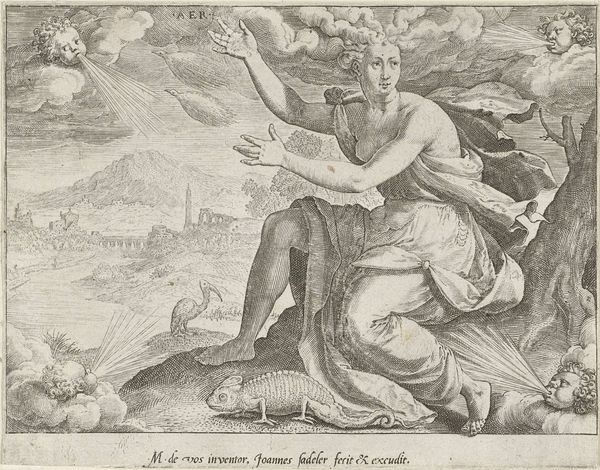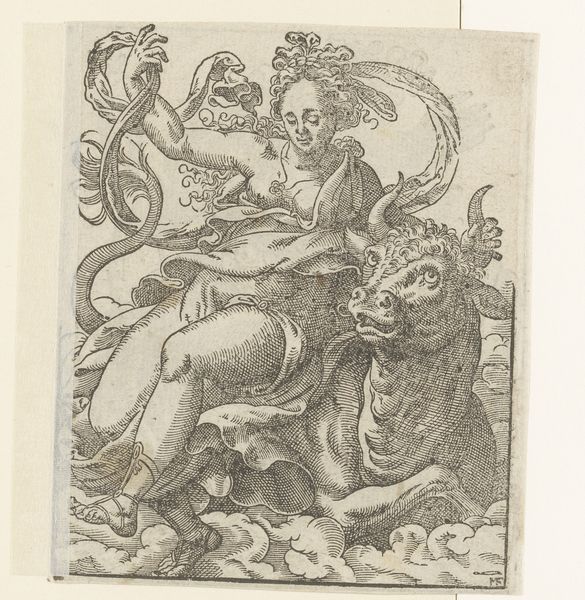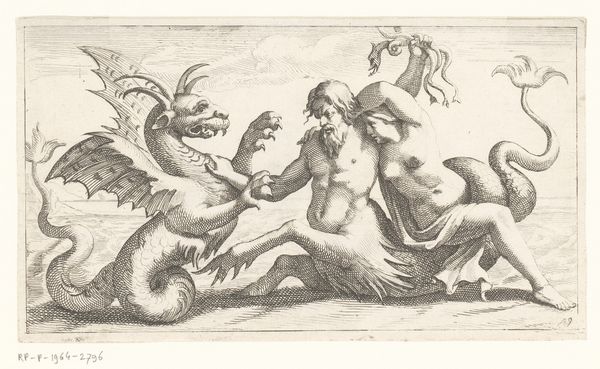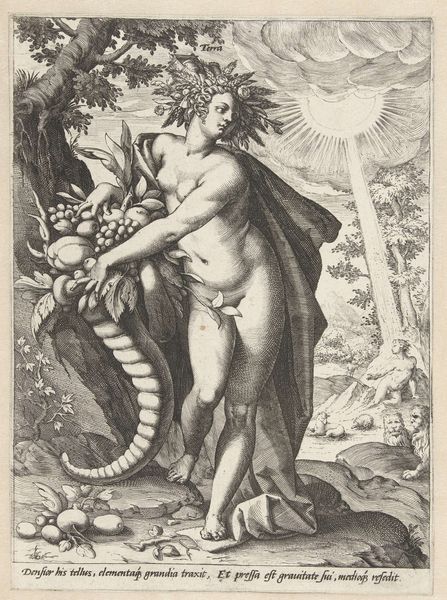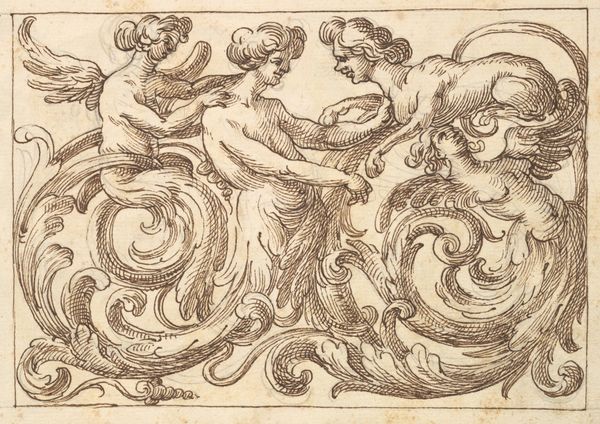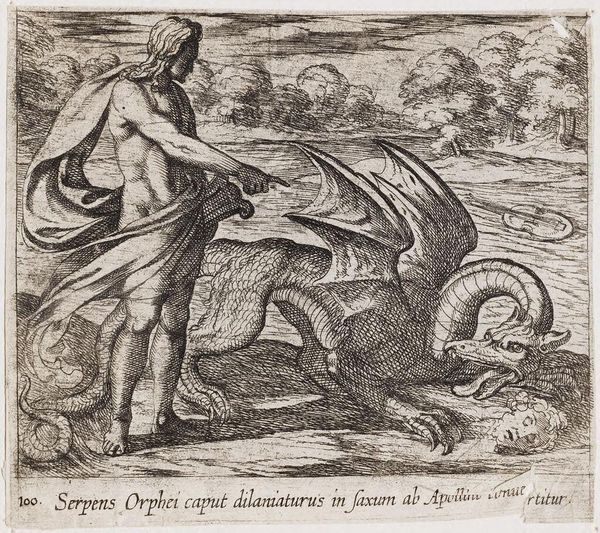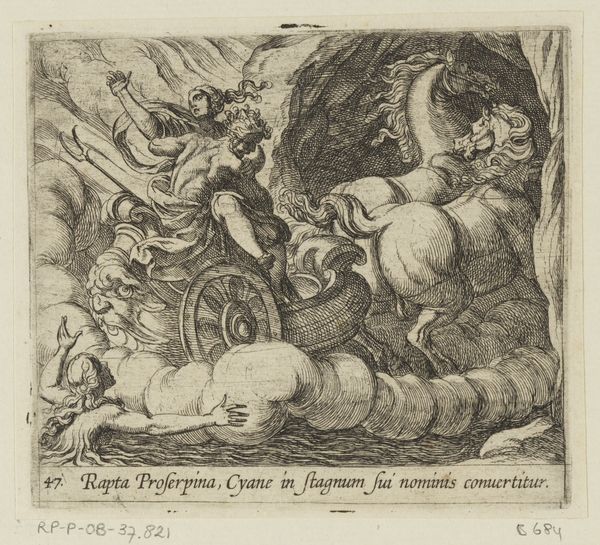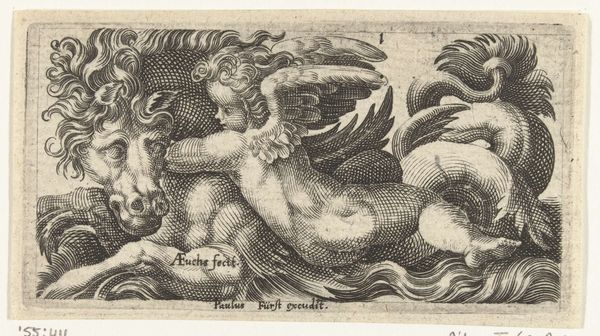
print, engraving
#
allegory
#
baroque
# print
#
pen sketch
#
old engraving style
#
figuration
#
line
#
history-painting
#
engraving
Dimensions: height 104 mm, width 118 mm
Copyright: Rijks Museum: Open Domain
Editor: We're looking at "Triptolemus ontvangt de wagen van Ceres" or "Triptolemus receiving the chariot from Ceres," an engraving by Antonio Tempesta from between 1606 and 1638. It's got such a detailed, almost frenetic energy! I'm especially struck by the two huge, scaly dragons pulling the chariot. What's your take on it? Curator: Considering the historical context, the print functions as a political tool as much as an aesthetic object. Prints like this, circulating widely, disseminated specific interpretations of classical mythology that resonated with contemporary social structures and power dynamics. The figures of Ceres and Triptolemus aren't merely aesthetic subjects; they're symbols. Editor: Symbols of what, exactly? The dissemination of knowledge, perhaps? Curator: Precisely. Think about the patronage system of the time. Artists often created works promoting the virtues of those who supported them. Ceres, bestowing agriculture onto Triptolemus, visually champions the elite’s role as benefactors, legitimizing their societal position through this classical narrative. What impact do you think the distribution of prints like this had on shaping public perceptions? Editor: So it's not just a nice picture, but a carefully constructed message about power! I guess it’s easy to forget, looking at art in a museum, how active a role it played in its time. I learned to see these kinds of baroque images with more analytical perspective! Curator: And that critical understanding is crucial! By examining the historical context, we can unveil the social and political forces that shaped not just the creation, but also the reception of this captivating print.
Comments
No comments
Be the first to comment and join the conversation on the ultimate creative platform.
